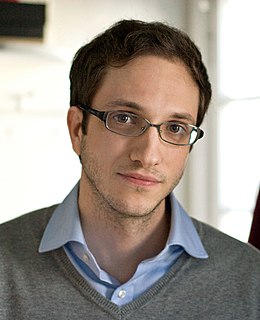A Quote by Sergey Brin
We came up with the notion that not all web pages are created equal. People are – but not web pages.
Related Quotes
Once you understand that everybody's going to get connected, a lot of things follow from that. If everybody gets the Internet, they end up with a browser, so they look at web pages - but they can also leave comments, create web pages. They can even host their own server! So not only is everybody consuming, they can also produce.
The term 'web-series' has a stigma attached to it because it was created at a time when the only web-series that were being created were being created by people who would have loved to have a television show, but they couldn't. So they created a web-series instead, on their own dime. And those series look cheap because of it.
When you close a tab or when you finish an article on the web, it's gone unless you go back into your history or search for it or explicitly try to find it. Apps on your phone have this special property: they hang around. In some ways, they're more like a book on a bookshelf than they are like web pages.
































